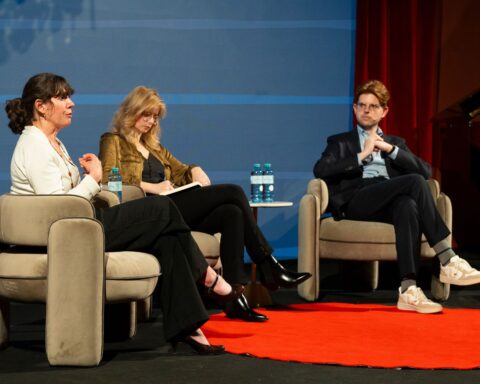
It only took a conversation with Weirong Li (21), founder of Raw Culture, to truly begin reflecting on how being a TCK has shaped my life and who I am. Understanding the highs and lows of being a TCK herself, Weirong recognized the unique but common challenges that TCK’s experience all the way into adulthood. In a world where it can be confusing enough to figure out who you are, it’s vital to have a platform where you can connect and relate to others with similar experiences. This was the inspiration behind Raw Culture, whose mission is to encourage and create intercultural dialogue and thereby promote diversity and inclusivity – through blogs, videos and events. Noticing that many TCK’s undervalue their multicultural experiences and background, Weirong has gone a step further to create a job platform, which connects international recruiters from global companies with global talents. In doing so, she hopes to empower TCK’s in working environments, by helping them understand what unique qualities they can bring to the table.
The Highs
Undoubtedly, growing up interculturally has its benefits. When you’re exposed to multiple environments and are used to hopping from country to country, particularly at a developmental age, you naturally learn some tricks of the trade. For instance, you may have the ability to adapt to your surroundings quickly. Like a chameleon, depending on where you are and who you are with, your colours change. This could entail something as casual as your accent or something as decisive as your sense of humour and your personality. It comes as no surprise that TCK’s often appear to be people pleasers! However, it is precisely this trait which makes it easy for you to get along with all types of individuals and is generally associated with a higher interpersonal sensitivity and cross-cultural competencies.
Additionally, you’re more than likely to have picked up a few languages, or at least the most important curse words (just kidding), along the way. Other advantages that might be worth mentioning are the joy of celebrating multiple holidays, having a varied taste in music, and recognizing authentic cuisine when you see it. Yes, that does suggest you are likely to be a foodie! All in all, this makes you a unique character who can always walk into a room with a captivating and entertaining story to tell. But before it begins to sound like I am tooting my own horn, it’s important to mention some of the challenges that TCK’s grapple with, even long after they have outgrown their juvenile years.
The Lows
While the topic of identity formation is very complex and goes far beyond the scope of this article, you can probably agree that, at an elementary level, the following components are critical to shaping who you are and long exert their influence before you’re even fully aware. These include:
– Gender
– Skin colour
– Nationality
– Religion
– Class
– Ethnicity
This leads to the formation of cultural groups, each having their own unique set of core values, which include but are not limited to language, traditions and political organization. When your identity becomes reinforced by values from different or opposing cultures, it’s easy to understand how this may cause a feeling of confusion or rootlessness. This is often referred to as ‘Cultural Homelessness’, which describes ‘certain individuals of mixed ethnic and/or cultural background living within a framework of experiences, feelings, and thoughts that do not belong to any single racial, ethnic, or cultural reference group. By definition, the individuals involved are distinguished by their uniqueness.’ Perhaps this is why some (adult) TCK’s describe a feeling of restlessness and choose the nomad life, in search of somewhere they feel they truly belong.
Furthermore, while discrimination may not speak to the experience of all TCK’s, looking different or behaving outside of the norm can make us feel like imposters wherever we go. As a result, home is never a place, but more likely, the people you spend the most time with: family.
While that might sound like a nice cliché quote you’d hang up on the living room wall, this can also mean that TCK’s have difficulty maintaining stable and meaningful relationships. Think of it as a defense mechanism, which enables you to develop the ability to detach from people, places or things in order to minimise grief. While this doesn’t make saying goodbye hurt any less, it helps deal with that state of ‘impermanence’ you might be accustomed to. Some research even suggests that this makes TCK’s more prone to depression. On the outside, they may seem totally normal, but are they receiving the support that is often needed to deal with these ‘traumatising’ events?
Where Are You Really From?
Going back to the question which brought us here in the first place, I believe that one common experience that TCK’s will always share is that this particular sentence will never cease to evoke an inner feeling of panic. Not because we are ungrateful for the opportunities we’ve received or the life we’ve lived, but because it feels like we are often being asked to conform to someone else’s understanding of what we should be – even if we are not so sure ourselves. Though we may not necessarily want to choose, it sometimes seems like we are expected to. Ultimately, we’ll look at our watch and go for the version of the story that will be bought the quickest. This is not to say that it’s bad to honestly ask someone where they are from out of a natural curiosity, however, it does shed some light on the experience of being a Third Culture Kid today.
Interested in finding out more about Raw Culture? You can also check out their Instagram page here or join the online community here.
Header Image from Pexels by cottonbro
Reviewed by Cosima Rudigier and Proofread by Ipek Yilmaz




